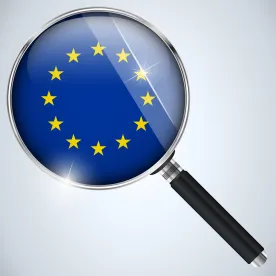If we needed any reminder that the competitiveness of e-commerce was high on the European Commission’s enforcement agenda, we now have unequivocal proof of this. The Commission today launched three separate investigations under the competition rules against companies operating in the (i) consumer electronics, (ii) video games and (iii) hotel sectors. It is looking into whether these companies are breaching EU competition rules by unfairly restricting retail online prices and/or by excluding customers from certain online offers because of their nationality or location.
The launch of these investigations does not entirely come as a surprise since the preliminary findings of the Commission’s sector inquiry on e-commerce, launched in 2015, had already identified retail price restrictions, discrimination on the basis of location and geo-blocking practices as areas of concern and focus, as reported in our earlier blogs. What is surprising though, is that the Commission has launched this enforcement initiative before it has even concluded its inquiry and published its final findings, which it is expected to do in the forthcoming months.
To put this latest initiative in context, sector inquiries are huge data gathering exercises enabling the Commission to better understand market dynamics. Targeted enforcement actions generally follow such inquiries, because the Commission will have found a systemic problem, which needs to be urgently addressed. This tells us that the Commission has clearly already gathered sufficient evidence to justify launching its e-commerce enforcement offensive at this stage.
The investigation in the consumer electronics sector will focus on whether certain companies are restricting the ability of online retailers to set their own prices. The alleged restrictions may have an effect on overall online prices for consumer electronic prices, due to the use by many online retailers of pricing software that adapts retail prices to those of leading competitors.
The investigation in the video game sector will look into whether consumers in a particular Member State are being prevented from buying cheaper games that may be available in other Member States through the use of “activation keys”, which grant access to a game only to customers in a particular EU Member State.
Finally, following complaints from customers, the Commission is looking at whether consumers located in a Member State are prevented from booking hotel accommodation at better conditions offered by tour operators located in other Member States. The Commission will review whether agreements between Europe’s largest tour operators and certain hotels contain clauses that discriminate between customers, based on nationality or location.
Is there more to follow and what next? This is likely a first wave of enforcement action, as past experience with Commission sector inquiries shows that in the months following the completion of a sector inquiry, the Commission will leverage the insights it has gained to pursue further targeted enforcement. It is noteworthy that in the aftermath of the Commission’s last sector inquiry in the pharmaceutical sector back in 2009, it launched a series of dawn raids simultaneously with the publication of its final report.
The message is clear: companies who have online distribution channels are well advised to “put their (online) shops in order” as soon as possible to avoid being targeted.



 />i
/>i

